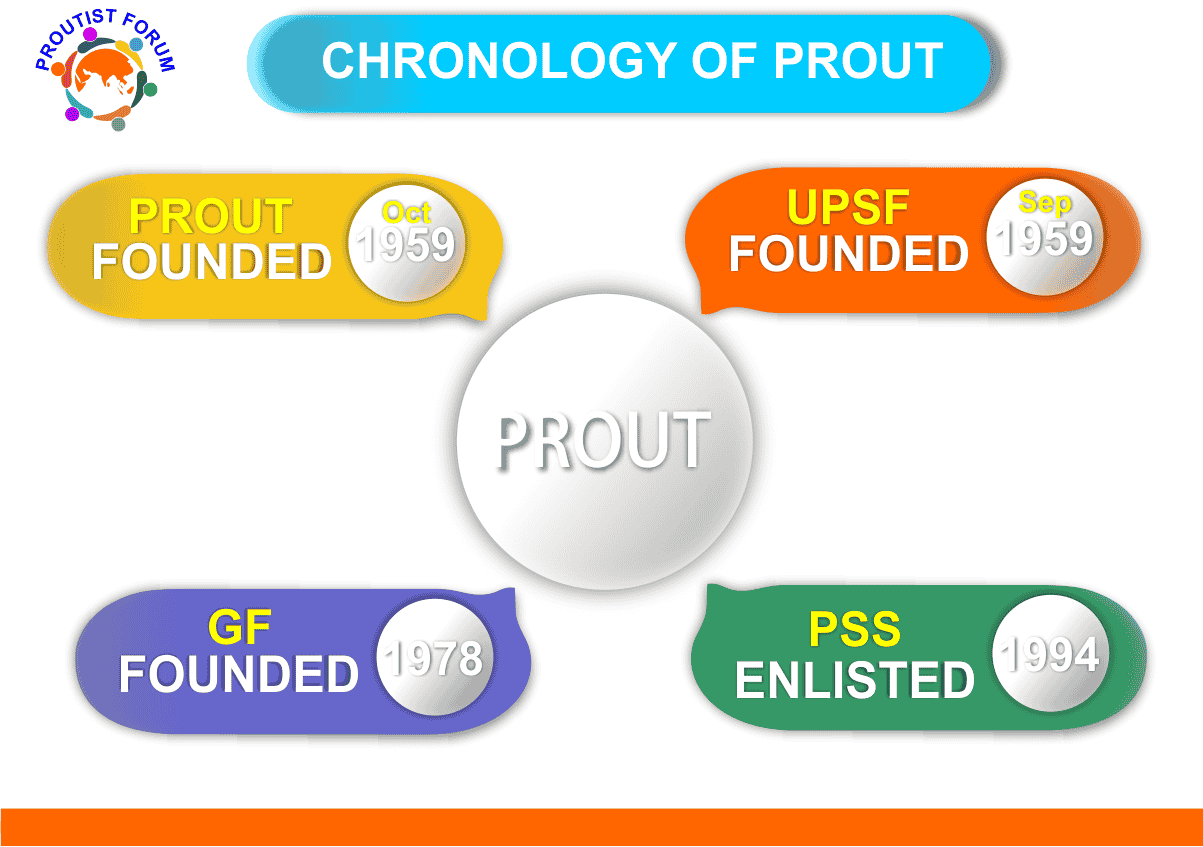PROUT- Chronology
Here is a chronological outline of PROUT (Progressive Utilization Theory), highlighting its origin, development, and global spread:
1959 – The Genesis of PROUT
On October 17 to 22, 1959, the first PROUT Convention was held at Jamalpur-the birth place of P.R.Sarkar. During this Convention on October 21, 1959, he said on PROUT –
Our intellectual revolution is of democratic nature. Proutists are to make people conscious of their rights and demands.'
The following are key points:
Shrii Prabhat Ranjan Sarkar, a spiritual teacher and philosopher, formulated PROUT in 1959.
The theory was first introduced in the Bengali language in the book titled "Ánanda Sútram" (later translated).
The initial five principles of PROUT were articulated during this time, providing the foundation for a new socio-economic model.
1961 - 1967
The first English treatise on PROUT, “An Outline of PROUT”, was published. This helped the theory reach a wider global audience, particularly intellectuals, economists, and social reformers.
Progressive Federation of India (PFI) and Progressive Bloc of India (PBI) were formed.
The name Progressive Federation of India (PFI) was replaced by Proutist Forum of India.
On September 14, 1959, Universal Proutist Students Federation (UPSF) was founded.
In January 1965, Universal Proutist Intellectual Federation (UPIF) was founded.
In May 1965, Universal Proutist Youth Federation (UPYF), Universal Proutist Farmers Federation (UPFF) and Universal Proutist Labour Federation (UPLF) were founded.
1968–70 – Expansion of Socio-Economic Philosophy
Sarkar gave discourses on the deeper aspects of PROUT, including cooperative economics, decentralized planning, moral leadership, and the dynamic nature of society.
He emphasized economic democracy and self-reliant socio-economic zones.
1978 – Establishment of PROUT Research Institutes
The first PROUT Research Institute was established in Copenhagen, Denmark.
Later, similar institutes emerged in India, Australia, the USA, and other countries to promote study, policy formulation, and activism based on PROUT.
On August 4, 1978, Girls Proutists (GP) was founded.
1980s – Socio-political Activism and Globalization of PROUT
PROUT gained momentum in various parts of the world, especially in Latin America and Southeast Asia.
The theory was increasingly applied to address poverty, inequality, and ecological destruction.
1990 – Passing of Shrii P. R. Sarkar
Sarkar passed away in 1990, but his legacy through PROUT continued via institutions like Ananda Marga and PROUT-based organizations.
Followers compiled his lectures, speeches, and writings into volumes to preserve his vision.
2000s–Present – Application & Policy Advocacy
Think tanks and organizations continue to promote PROUT in fields like ecological economics, cooperative development, and grassroots empowerment.
PROUTists are actively participating in global forums to present the model as an alternative to capitalism and communism.
